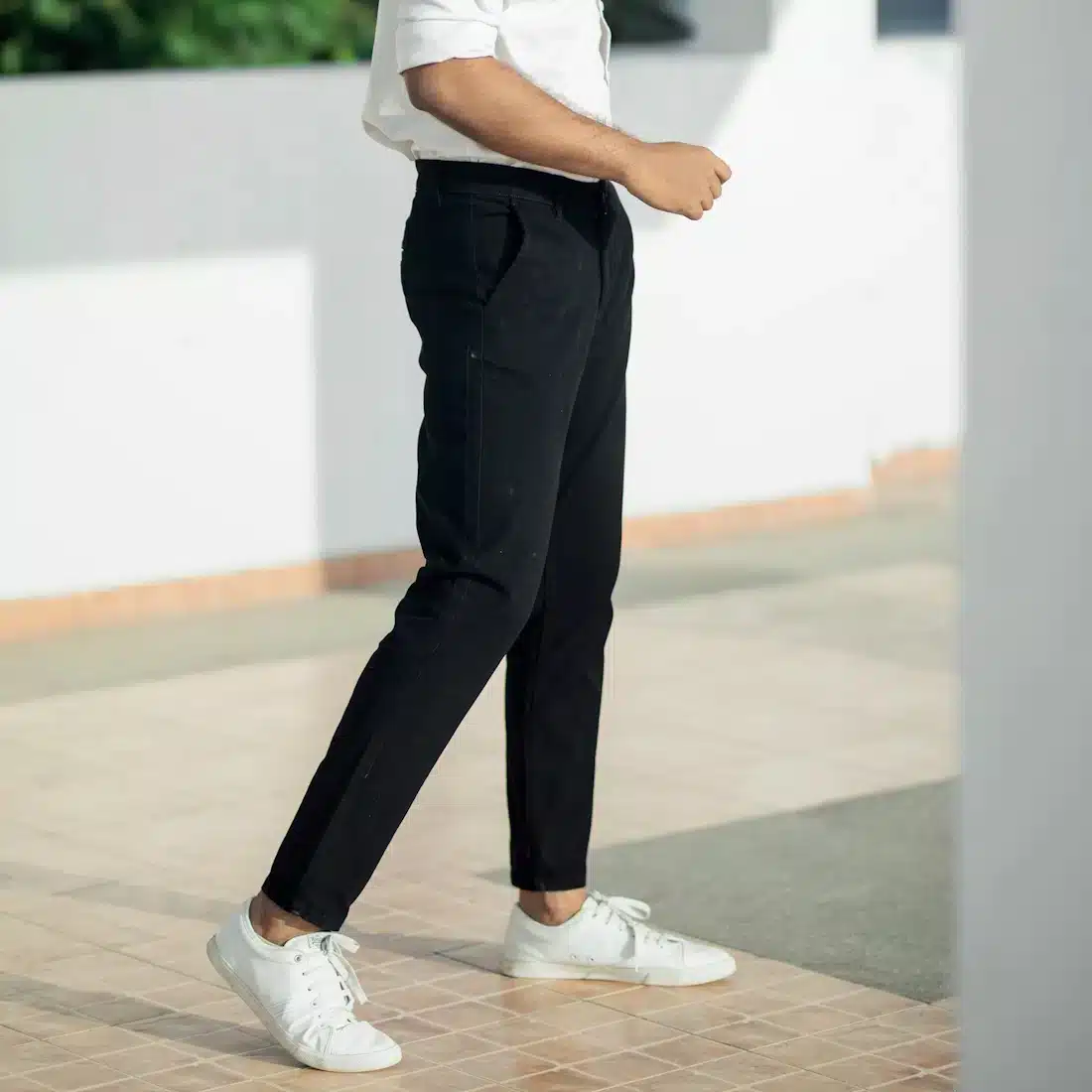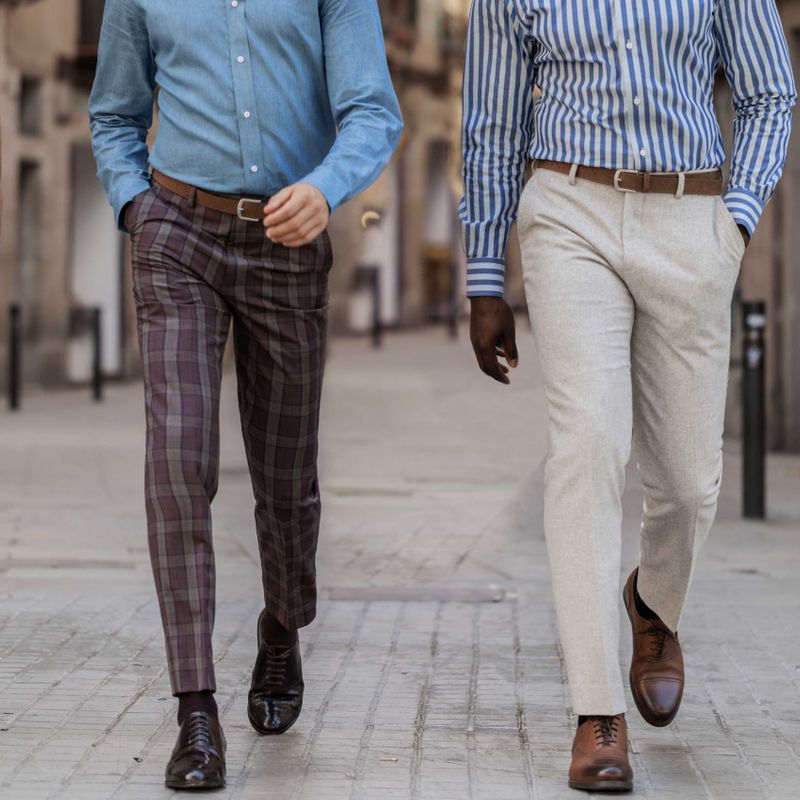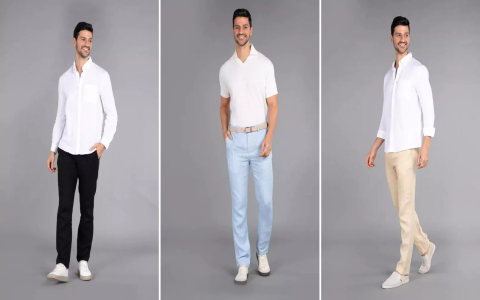So I decided to try styling these damn skinny dress slacks year-round after buying ’em last spring. Figured they’re too stiff for casual wear, but turns out I was dead wrong. Started simple by rolling up the hems with some plain white sneakers and a gray hoodie – boom, instant coffee-run outfit. Even my barista complimented it, and that dude never says anything.

The Heatwave Test-Drive
Summer hit hard in July, and I thought these polyester-blend pants would cook me alive. So I tried this:
- Cut the socks completely. Went bare ankle with low-top canvas shoes
- Swapped dress shirts for thin cotton tees
- Lightweight linen blazer when needing to look less sloppy
Walked three blocks to the post office sweating like crazy, but surprisingly didn’t feel like a sauna bag. The secret’s leaving that top button undone for airflow.
Fall Layers Situation
Come October, tried building actual outfits. Threw on a flannel shirt under an unstructured navy blazer – felt dumb at first like I was playing dress-up. But pairing with Chelsea boots suddenly made it click. The slim pants kept the layers from looking boxy. Even got away with wearing the same pants two days straight at client meetings because nobody notices black slacks anyway.
Winter Survival Mode
Here’s where I almost quit. First snow hits and my legs went numb walking to the subway. Nearly froze my ass off until I discovered thermal leggings underneath. Looks ridiculous when you’re changing, but outside? Perfect. Added chunkier wool coats and waterproof boots that cover the ankles. Pro tip: when slush gets ugly, tuck the pants into boots like you’re some kind of urban cowboy. Actually works.

Now these $79 pants became my lazy uniform. Job interview? Add tie. Date night? Roll sleeves, unbutton collar. Dumb office party? Christmas sweater nonsense. They somehow survive everything except my cat’s claws when she climbs my legs. Moral of the story: men’s fashion can be stupid easy when you stop overthinking it and accept looking identical for 300 days straight. Next challenge: making one pair survive two winters.




